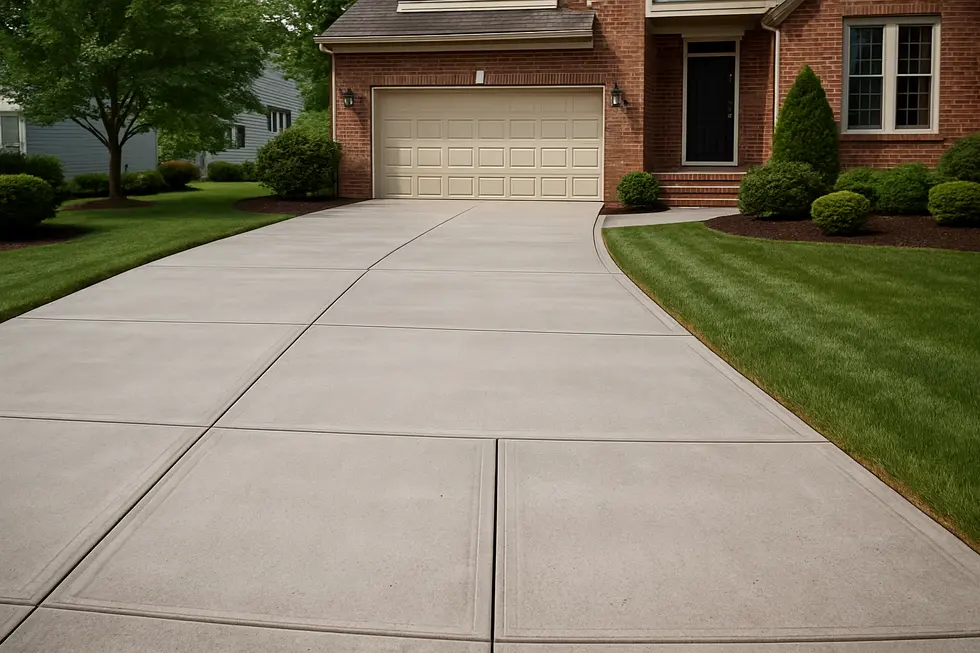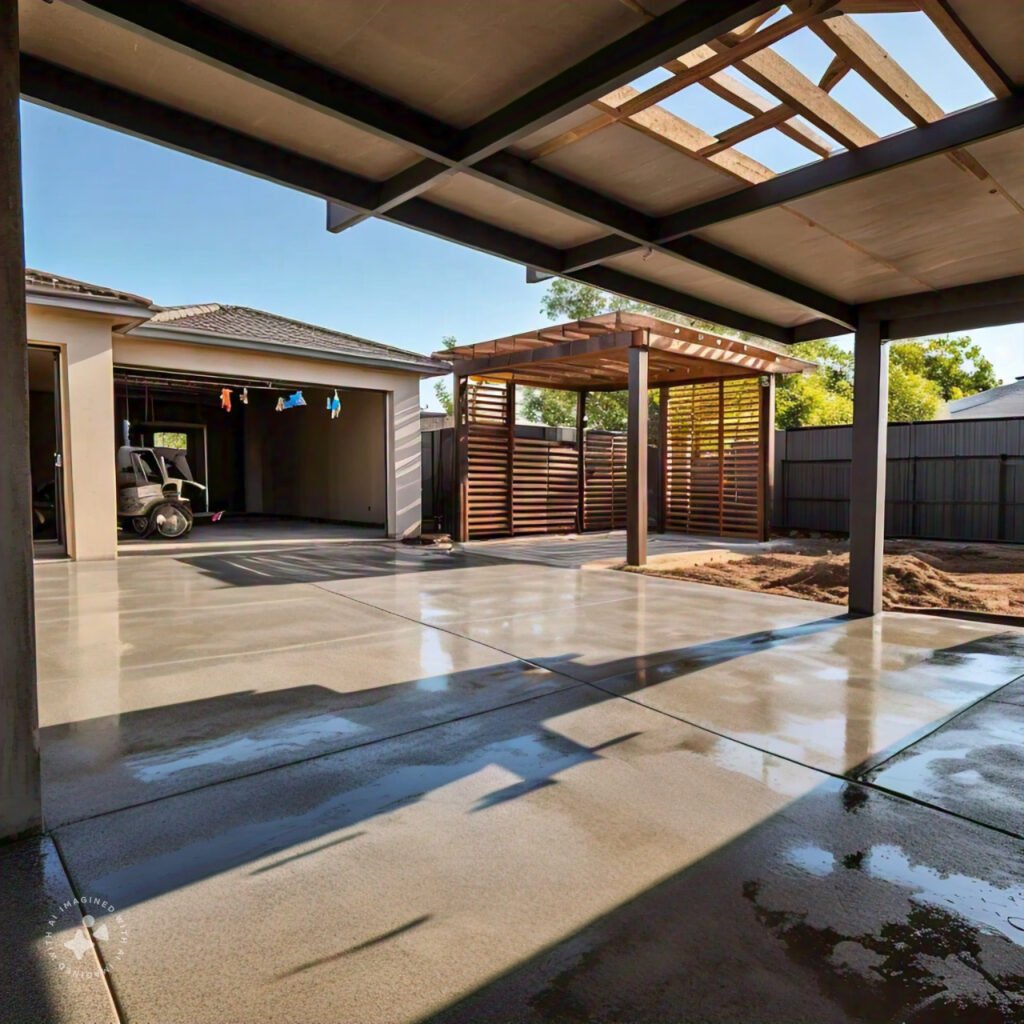Recent tariff policies have significantly influenced the concrete construction industry, affecting material costs and project timelines. For homeowners planning concrete construction projects in Massachusetts, understanding these shifts is essential for budget management and project success. This article explores how tariffs are reshaping the industry landscape, offers insights into navigating these changes, and provides guidance on making informed decisions for durable, cost-effective concrete solutions.
The Impact of Tariffs on Concrete Material Costs and Industry Dynamics

Industrial warehouses across Massachusetts are now filled with the hum of activity as workers load pallets of concrete construction materials. Large cement bags, stacked systematically, bear markings that reveal recent price hikes caused by tariffs. Rebar bundles, once affordable staples in residential projects, now command higher prices, causing builders to reassess budgets and timelines. In these bustling warehouses, the vibrant colors of safety vests and machinery contrast sharply with the metal and concrete tones, creating a vivid scene that reflects industry shifts.
Recent tariffs imposed on imported raw materials and overseas concrete components have significantly disrupted the supply chain. As tariffs increase the cost of imported cement and rebar, suppliers pass these expenses directly to contractors and consumers. In response, many suppliers have turned towards domestic sourcing, though this transition is not always seamless due to limited local production capacity. These industry adaptations often result in delays, further straining project schedules for homeowners eager to see their homes evolve.
Within the warehouse, workers efficiently load shipping containers with rebar, the critical reinforcement for concrete structures. The containers, stacked high, symbolize the global nature of the supply chains that are now strained under tariff burdens. The recent tariffs have prompted a reevaluation of long-standing industry standards, pushing contractors toward innovative solutions like alternative reinforcement materials or recycled aggregates to mitigate costs.
This environment exemplifies a market in flux, where price volatility compels homeowners and builders alike to strategize more carefully. Some have opted to adjust project scopes or delay certain phases until material costs stabilize. Others are exploring local concrete suppliers or creative alternatives to mitigate the impact of tariffs.
For Massachusetts homeowners concerned about how these economic shifts influence their projects, understanding these industry dynamics is essential. Consulting with experienced contractors who are navigating these tariffs and supply changes can provide valuable insight. To learn more about managing concrete projects during this turbulent period, homeowners should consider resources like local construction management services. For example, visiting this link can offer guidance on how to adapt project plans amidst rising material costs.
Overall, the scene in these industrial spaces underscores the complex interplay of international trade policies and local construction realities. As tariffs continue to shape the industry, flexibility and informed decision-making will be key for homeowners aiming to complete their concrete constructions efficiently and cost-effectively.
Navigating Costs and Project Timelines Amid Tariff-Driven Market Changes

As Massachusetts homeowners plan for new concrete projects, understanding how tariffs influence costs and timelines becomes essential. Recent market shifts driven by tariffs on imported materials have complicated the usual ordering and construction process, requiring more strategic planning and communication with contractors. When discussing a project on-site, homeowners often focus on design preferences or budget constraints, but the impact of tariffs now demands a broader perspective. Contractors are facing increased costs for raw materials like cement, rebar, and other concrete components, leading to higher overall project estimates. These price hikes can delay procurement, pushing back project timelines, especially when domestic supplies are limited or production is strained.
During a site visit, homeowners and contractors discussing blueprints or material samples need to account for these fluctuations. For example, selecting alternative concrete mixes or adjusting specifications might help control costs without compromising quality. Contractors may suggest some materials or methods that are less affected by tariff-induced price increases, but these decisions require careful evaluation and mutual understanding. Open communication about potential delays and budget adjustments can prevent surprises down the line.
Homeowners should also consider flexible scheduling options, allowing contingency periods for material delivery delays. For projects involving large quantities of concrete, securing supply agreements early can mitigate risks associated with tariffs. Investing time in thorough planning ensures that project costs remain manageable and timelines stay realistic. Moreover, engaging with experienced contractors who are familiar with current market dynamics can reveal innovative solutions, such as sourcing locally produced materials or exploring new construction techniques that minimize material use.
Ultimately, adapting to this tariff-affected market environment requires a proactive approach. Homeowners can benefit from consulting resources like construction management professionals or industry updates to stay informed on recent shifts. Staying flexible and maintaining open communication channels helps avoid costly disruptions and ensures the successful completion of projects. For those interested in more insights into managing concrete construction amid current challenges, exploring local expertise or industry best practices can provide valuable guidance—some of which can be found at construction management resources. As the market continues to evolve, those who adapt their planning strategies will navigate costs and timelines more effectively, turning tariff challenges into opportunities for innovative and resilient home improvements.
Final words
Tariffs are undeniably transforming the concrete construction landscape, impacting material costs and project planning. For Massachusetts homeowners, understanding these changes is vital for making strategic decisions and ensuring the durability and value of their projects. Staying informed about market shifts and working with experienced concrete professionals can help mitigate challenges and achieve long-lasting results in your home’s concrete construction endeavors.
Ready to start your concrete project with expert guidance? Contact Cross Construction Services today!
Learn more: https://ccsconcretedriveways.com/#quote
About us
At Cross Construction Services, we specialize in creating durable, aesthetically pleasing driveways that not only enhance the curb appeal of your home but also add significant value to your property. With over three decades of experience in the construction industry, our team in Houston, Texas, is committed to delivering top-quality craftsmanship and unparalleled customer service.


